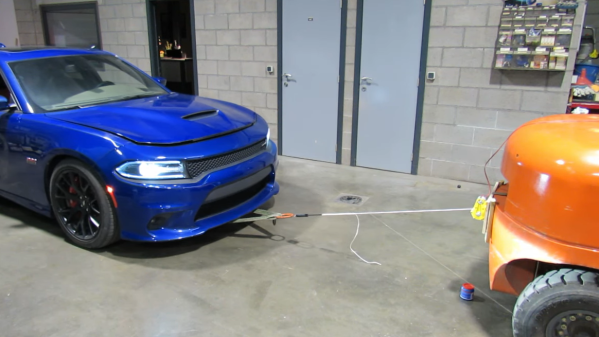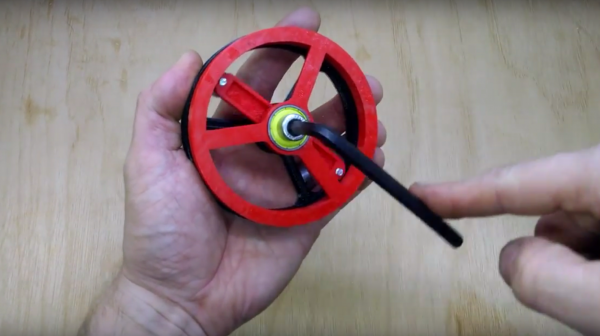3D printers are good for a lot of things, but making parts for power transmission doesn’t seem to be one of them. Oh sure, some light-duty gears and timing belt sprockets will work just fine when printed, but oftentimes squooshed plastic parts are just too compliant for serious power transmission use.
But that’s not a hard and fast rule. In fact, this 3D-printed strain-wave transmission relies on the flexibility of printed parts to work its torque amplification magic. In case you haven’t been briefed, strain-wave gearing uses a flexible externally toothed spline nested inside an internally toothed stationary gear. Inside the flexible spline is a wave generator, which is just a symmetrical cam that deforms the spline so that it engages with the outside gear. The result is a high ratio gear train that really beefs up the torque applied to the wave generator.
It took a couple of prototypes for [Brian Bocken] to dial in his version of the strain-wave drive. The PLA he used for the flexible spline worked, but wasn’t going to be good for the long haul. A second version using TPU proved better, but improvements to the motor mount were needed. The final version proved to pack a punch in the torque department, enough to move a car. Check it out in the video below.
Strain-wave gears have a lot of applications, especially in robotic arms and legs — very compact versions with the motor built right in would be great here. If you’re having trouble visualizing how they work, maybe a Lego version will clear things up.
Continue reading “3D Printed Strain-Wave Gearbox Turns Up The Torque”












